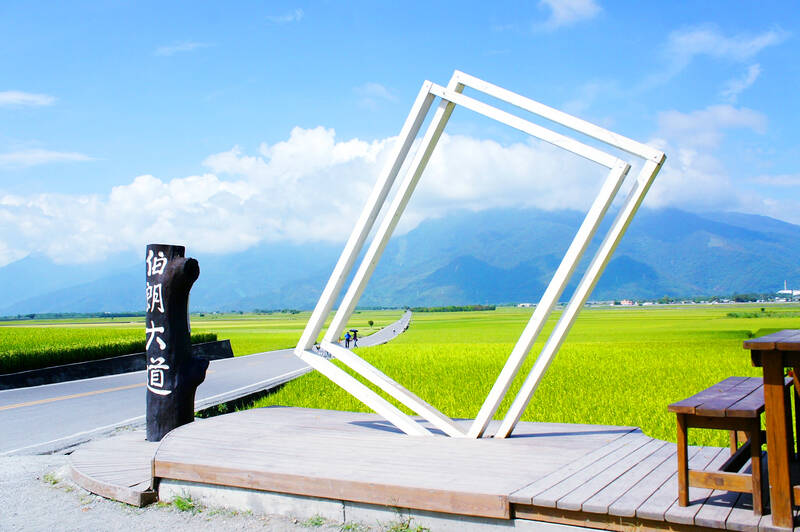The Tourism Bureau on Monday brought back a program to offer charter-flight subsidies to travel agencies that bring international tourists to Hualien and Taitung counties.
The program offers incentives to travel operators that charter flights carrying 50 or more travelers from outside Taiwan and land in Hualien or Taitung counties.
Flights from Japan are to attract a NT$385,000 subsidy, while those from South Korea and Southeast Asian countries can receive NT$335,000, the bureau said.

Photo: Screen grab by Chen Hsien-yi, Taipei Times
Charter flights from the Philippines, China, Hong Kong, Macau and other nations would each be subsidized NT$285,000, it said.
Travel agencies are to receive additional subsidies if a charter flight has more than 50 percent of the aircraft’s seats filled, the bureau said.
However, as the bureau aims to bolster the number of visitors participating in festivities around the Lunar New Year and Taiwan Lantern Festival periods, 40 percent additional subsidies are being offered if flights are 30 percent full from Sunday to Feb.28, and to take effect again Jan.1 to March 31 next year and Jan.1 to March 31 in 2025, the guidelines say.
Travel agencies can receive an additional 10 percent of its qualifying subsidy if the travelers spend at least one night in a hotel in Hualien or Taitung, the bureau said.

CARROT AND STICK: While unrelenting in its military threats, China attracted nearly 40,000 Taiwanese to over 400 business events last year Nearly 40,000 Taiwanese last year joined industry events in China, such as conferences and trade fairs, supported by the Chinese government, a study showed yesterday, as Beijing ramps up a charm offensive toward Taipei alongside military pressure. China has long taken a carrot-and-stick approach to Taiwan, threatening it with the prospect of military action while reaching out to those it believes are amenable to Beijing’s point of view. Taiwanese security officials are wary of what they see as Beijing’s influence campaigns to sway public opinion after Taipei and Beijing gradually resumed travel links halted by the COVID-19 pandemic, but the scale of

TRADE: A mandatory declaration of origin for manufactured goods bound for the US is to take effect on May 7 to block China from exploiting Taiwan’s trade channels All products manufactured in Taiwan and exported to the US must include a signed declaration of origin starting on May 7, the Bureau of Foreign Trade announced yesterday. US President Donald Trump on April 2 imposed a 32 percent tariff on imports from Taiwan, but one week later announced a 90-day pause on its implementation. However, a universal 10 percent tariff was immediately applied to most imports from around the world. On April 12, the Trump administration further exempted computers, smartphones and semiconductors from the new tariffs. In response, President William Lai’s (賴清德) administration has introduced a series of countermeasures to support affected

Pope Francis is be laid to rest on Saturday after lying in state for three days in St Peter’s Basilica, where the faithful are expected to flock to pay their respects to history’s first Latin American pontiff. The cardinals met yesterday in the Vatican’s synod hall to chart the next steps before a conclave begins to choose Francis’ successor, as condolences poured in from around the world. According to current norms, the conclave must begin between May 5 and 10. The cardinals set the funeral for Saturday at 10am in St Peter’s Square, to be celebrated by the dean of the College

CROSS-STRAIT: The vast majority of Taiwanese support maintaining the ‘status quo,’ while concern is rising about Beijing’s influence operations More than eight out of 10 Taiwanese reject Beijing’s “one country, two systems” framework for cross-strait relations, according to a survey released by the Mainland Affairs Council (MAC) on Thursday. The MAC’s latest quarterly survey found that 84.4 percent of respondents opposed Beijing’s “one country, two systems” formula for handling cross-strait relations — a figure consistent with past polling. Over the past three years, opposition to the framework has remained high, ranging from a low of 83.6 percent in April 2023 to a peak of 89.6 percent in April last year. In the most recent poll, 82.5 percent also rejected China’s